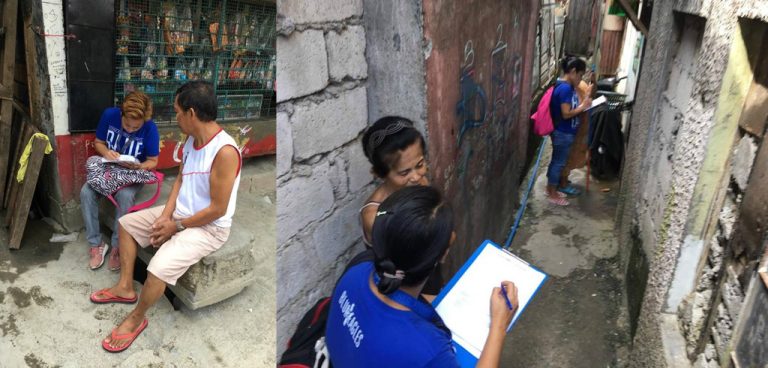By Justin Charles G. See, PARR Fellow
“The floods swept away everything we had – even our dreams and our future.”
This was the testimony of Maricel, a resident of Barangay Tumana, Marikina City, at the end of our key informant interview. I was accompanied by my field interviewers in a visit to the communities living under the Tumana bridge, a flood-prone area just beside the Marikina River in the Philippines.

Our team wanted to know more about the experiences of loss and damage from the community members themselves. The questions we prepared were supposedly simple and straightforward – we wanted to know how many pesos they lose / spend every time their particular area gets flooded after a typhoon. But the responses they gave were much more complex. They incurred losses and damages that they cannot easily quantify in pesos. In climate change literature, these are called non-economic losses and damages, or NELD.
What were these losses that were difficult to quantify?
The residents we talked to reported about the significant impact of floods on their health. Most of them, especially the children, complained of respiratory illnesses and diarrhoea after every typhoon. Some of the adults got diagnosed with leptospirosis – a disease caused by bacteria usually carried by rats. These illnesses hampered the ability of the respondents to be productive in work or in school. Worse, a number were forced to stay home in order to recover.
A number of residents also talked about the impact of floods on their environment. They were energized when they recalled how they were able to swim or bathe in the river before. Some recounted how they bonded with their neighbours while washing clothes together. I was amazed at how their eyes lit up with the stories on how their grandparents were able to catch fish. “We used to harvest kangkong (water spinach) and labanos (radish) right here near the river. Then we would go and have picnic with family”, said Rolando. However, he claimed that his family couldn’t do any of these things anymore. The floods have made the river impossible to swim / bathe in / have picnic with family.

The floods also have a substantial effect on their connections with other people. Sociologists call these links and shared understandings/ values as Social Capital. When asked about whom they go to for help in times of disasters, majority of the people we interviewed reported to have no one to go to. This was based on their experiences right after Typhoon Ondoy (Ketsana). Very few people helped them out, and majority of those who helped were family or relatives. This resulted to a lack of trust towards other people.
The most heart-breaking story I heard that day was that of Maricel. Tears streamed down her face as she recounted how her mother died during Typhoon Ondoy, “As the water was quickly coming in, I didn’t know what to do. I wanted to save my mother AND my five children. But things turned out differently…” Today, seven years after the typhoon, Maricel still finds it difficult to move on from the death of her mother. “My mother and I wanted to start a small restaurant just nearby. She was a good cook; I miss her adobo… Now that she’s gone, no one will cook my favourite adobo anymore. Our dream of starting our own restaurant too – it’s gone.” For Maricel, the loss of her mother meant more than an economic loss; it was a loss of a particular family arrangement, a loss of a special relationship, and a loss of a bright future for her family.
Health, Environment, Connections, and Human Lives – these encompass just some of the many non-economic losses and damages – intangible aspects of people’s lives that are difficult to measure yet they do matter. It is high time that we pay attention to NELD – as these are sometimes more important to people compared to the monetary losses.


